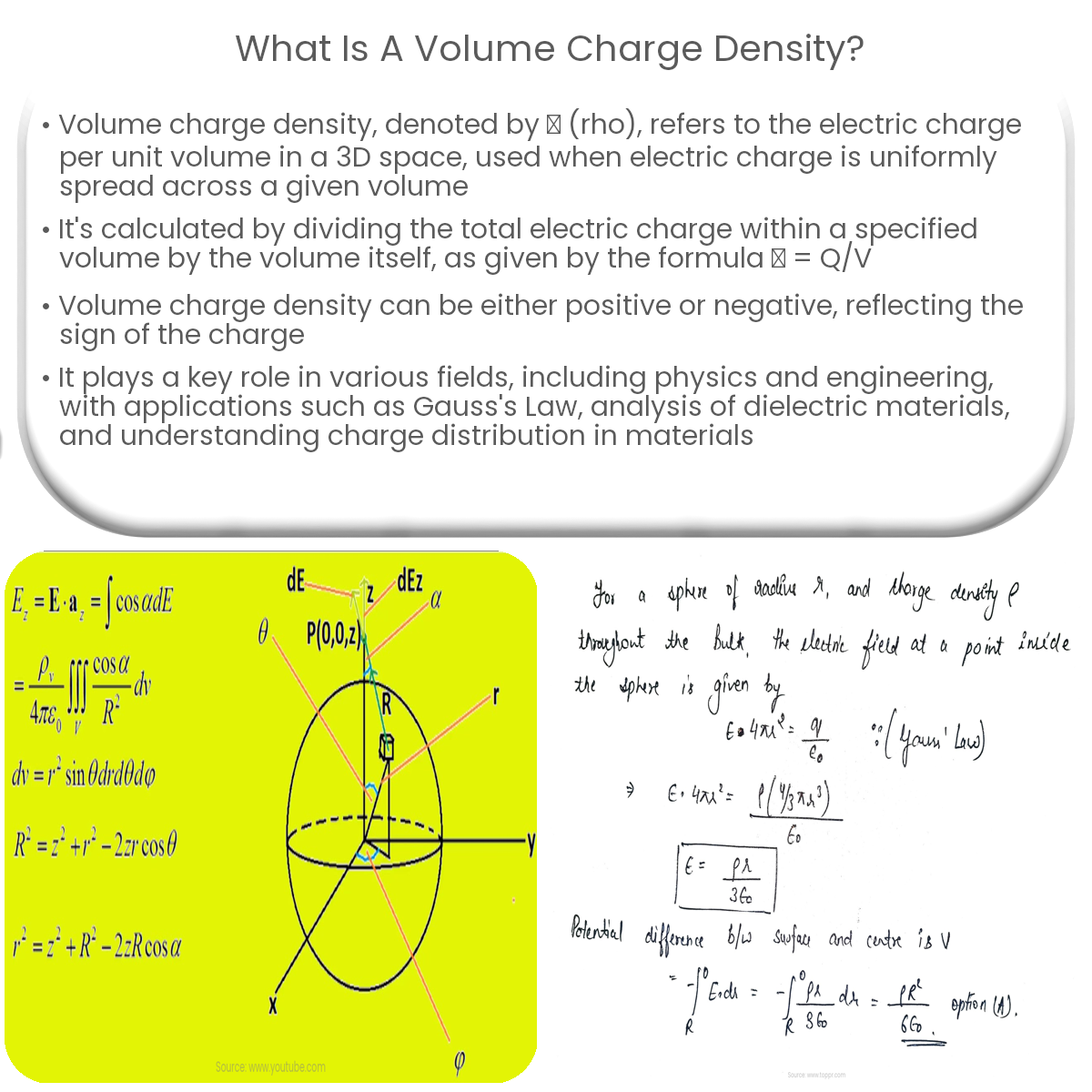Volume charge density measures electric charge per unit volume in a 3D space and is crucial for understanding electric fields and material properties.
Introduction to Volume Charge Density
Volume charge density is a key concept in electromagnetism, essential for understanding electric fields and analyzing the distribution of charges in various materials. In this article, we will explore the definition, calculation, and applications of volume charge density.
Definition of Volume Charge Density
Volume charge density, represented by the symbol ρ (rho), is the measure of electric charge per unit volume in a three-dimensional space. It is used when the electric charge is uniformly distributed throughout a given volume, and is expressed in units of coulombs per cubic meter (C/m3).
Calculating Volume Charge Density
To calculate volume charge density, divide the total electric charge present within a specified volume by the volume itself. The formula for volume charge density is:
ρ = Q / V
Where:
- ρ represents the volume charge density (C/m3)
- Q is the total electric charge (C)
- V is the volume (m3)
Similar to other charge densities, volume charge density can be positive or negative, depending on the charge’s sign.
Applications of Volume Charge Density
Volume charge density is an essential concept in various fields, including physics, engineering, and materials science. Some notable applications include:
- Gauss’s Law: Volume charge density plays a crucial role in Gauss’s Law, which relates the electric field surrounding a charged object to the total charge enclosed by the surface. This law is fundamental for understanding the behavior of electric fields and is used extensively in the study of electromagnetism.
- Dielectrics: Volume charge density is vital in the analysis of dielectric materials, which are insulating materials that can be polarized by an electric field. The polarization and dielectric constant of these materials are related to their volume charge density.
- Charge distribution in materials: Understanding volume charge densities is important for predicting the behavior of charged particles within various materials, including conductors, insulators, and semiconductors.
In conclusion, volume charge density is a fundamental concept in electromagnetism, providing a quantitative measure of electric charge per unit volume in a three-dimensional space. It is essential for understanding electric fields, analyzing dielectric materials, and studying the properties of various materials.


